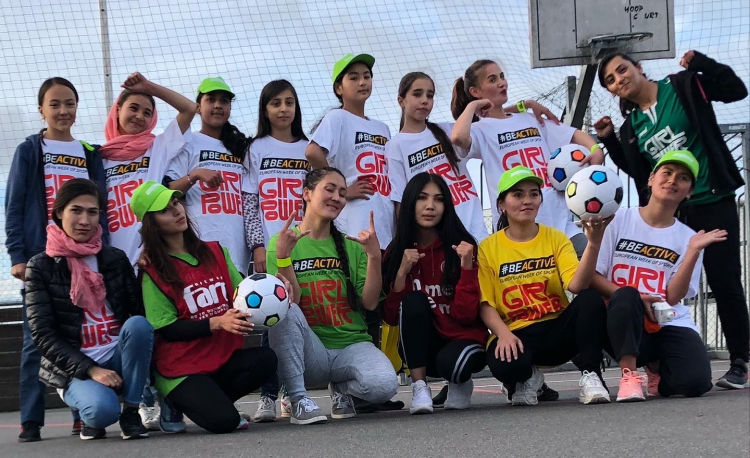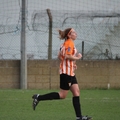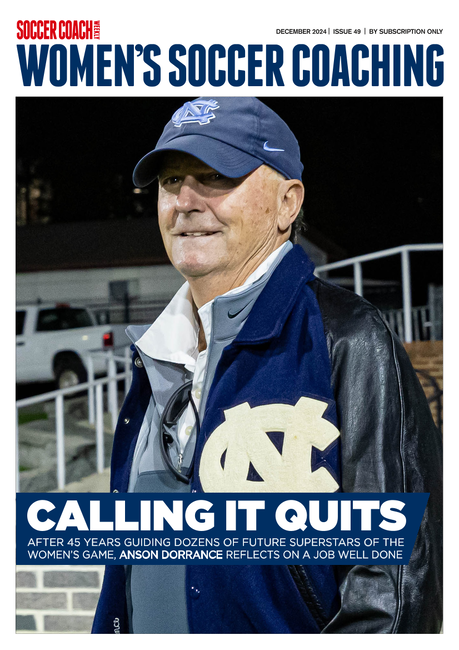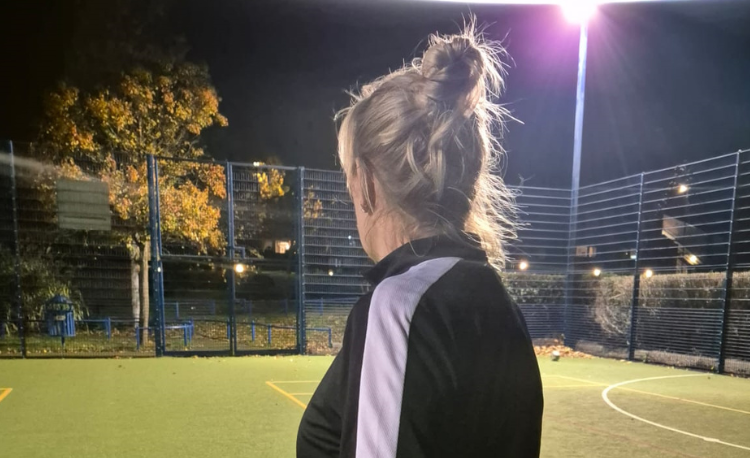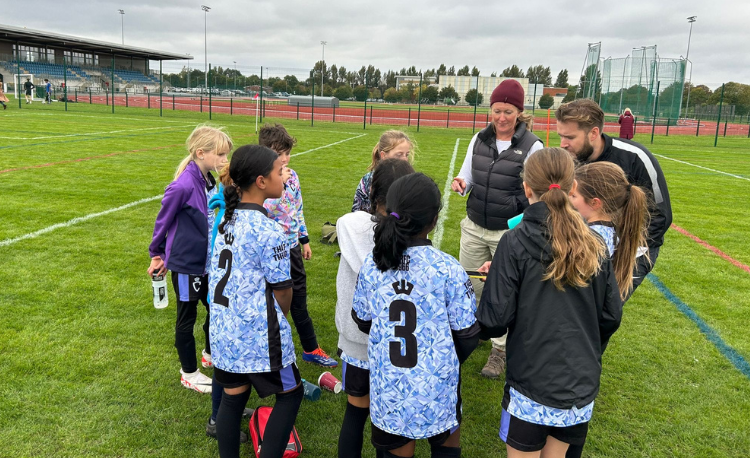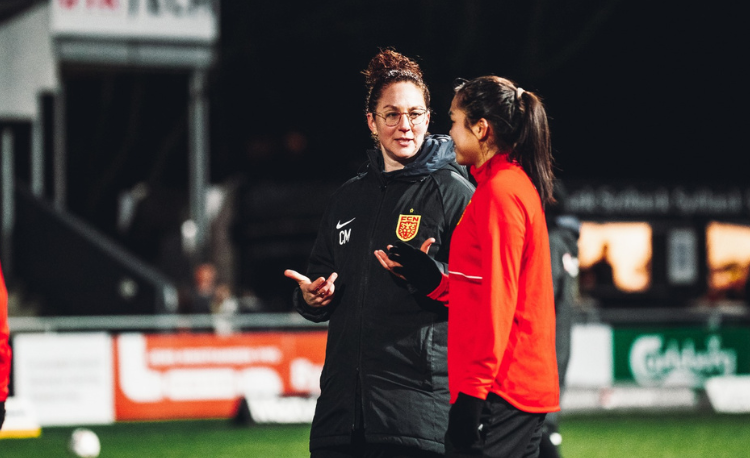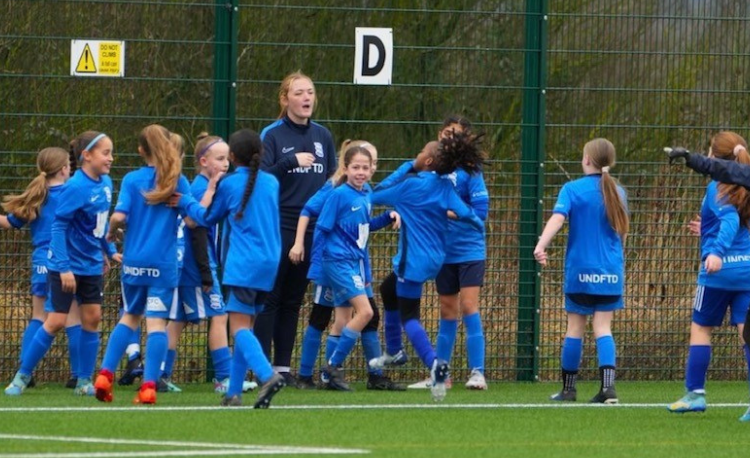You are viewing
1 of your 3 free articles
Empowering and inspiring refugees - the Girl Power programme
Former Afghanistan captain Khalida Popal explains how her Girl Power programme is giving soccer opportunities to thousands of marginalised women. Interview by Hannah Duncan.
Having experienced life as a refugee first-hand, Khalida Popal understood only too well the value of settling in a new country, getting to grips with a new culture and language and how sport can present vital opportunities to connect and thrive.
As a result, Khalida – a former captain of the Afghanistan women’s national team and one of the founding members of the first Afghan women’s football league – established Girl Power nine years ago.
The organisation has gone from strength to strength and is now active in four countries, directly impacting more than 3,000 women and girls.
WSC talked to Khalida to find out more about the programme, who it is aimed at and the ’give back’ mindset it promotes...
WSC: Tell us a bit about Girl Power and how it came about?
KP: I founded Girl Power in 2014 after being inspired by my time in refugee centres in Denmark and Norway.
While I was a refugee in a different centre, I saw the need for social activities and safe spaces where young women could connect and thrive.
I started coaching football and dance to women in the refugee centres where I lived and then started Girl Power when I got legal status in Denmark.
Now, Girl Power is an established organisation in Denmark, Germany, Greece, and the UK.
Our vision is to use sports and education as powerful tools in creating social inclusion and belonging as well as highlighting the valuable contribution of women and girls from all cultural and social backgrounds, especially ethnic minorities, refugees, immigrants and migrants.
Since 2016, we have trained more than 3,200 young community role models and future leaders in Greece, Turkey, Afghanistan, Denmark, Germany, Jordan, Pakistan and the UK.
WSC: Who is Girl Power aimed at?
KP: For each leadership academy, we target 30-35 women with a sports background between ages 18 and 30.
Our main target group is refugee and ethnic-minority women, because women from these groups are under-represented as leaders and coaches in sport.
"Our vision is to use sports and education as tools in creating social inclusion..."
For example, in Denmark, in the entire women’s football league, there are no coaches from our target group.
In the Danish first division, we don’t have a refugee or female minority. Many girls from our target group are dropping out of sports due to challenges they face.
WSC: What does the programme involve?
KP: Our Girl Power activities are divided into three main groups.
The first is grassroots football-based and sport-based training programmes for young girls aged 13-17.
These girls are trained by our young leaders. Most of this training takes place at the refugee centres and in marginalised communities.
The second group is our leadership programme for young female leaders aged 18–30.
We host three annual leadership academies in each country we operate. The academy consists of five days of residential workshops and six months of mentoring and peer-learning support.
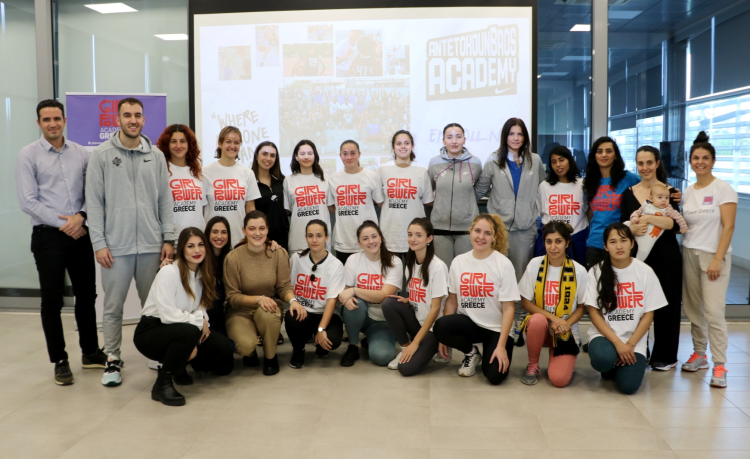
We have developed our own leadership programme with a curriculum which mixes physical training and sports activities with workshops.
The programme uses best practices from the sporting world as well as the social sector. Our workshops contain elements which are necessary in developing leadership skills such as inclusion, role models, storytelling and implementing the UN’s sustainable development goals.
We also invite people from the international Girl Power network to act as guest speakers. This gives the young leaders a range of inspiration and motivation and an opportunity for the speakers to give back to the network, giving inspiration to others and showing participants what a female role model looks like, so they can recognise the role model within themselves.
The third element is our mentorship programme for young females. We use the trainer model to support young leaders on how to use the power of sport to create impact in their communities.
WSC: Why is it so important to provide these opportunities to refugee communities?
KP: All of the Girl Power activities are based on a ’give back’ mindset and it is an important part of the way Girl Power values are taught.
We lead by example and every person in the Girl Power network has joined to give back. By teaching young women and girls to give back and see themselves as part of a community, we inspire them to take a leadership role.
Therefore, positive storytelling is an essential part of Girl Power activities. Making the role models visible also makes more young women follow their lead.
Storytelling allows the young leaders to own their story and show the positive contributions they are making to the community.
Through the stories, we show what the girls and women have achieved and provide role models to give inspiration to others in similar situations, hopefully inspiring them to create change in their own lives and their communities.
We also use this to show that social change is possible and that we all have the resources to create change in society and in our local communities.
The giving back mindset is an important part of creating empowerment. Once you realise you have something to offer to society, this is when you feel empowered.
CASE STUDIES
"I discovered my power as one of the participants of the Girl Power football training at the refugee centre.
"Life as a refugee wasn’t easy, especially with the trauma we have been through. Through activities, we engaged and had time to escape from difficult thoughts and think differently.
"After receiving my refugee status with Girl Power, I have managed to travel to a few European countries and speak at different events, and join workshops.
"Now I am volunteering in the organisation to support more women to find own their voices and power.
"Losing your identity, and going from being someone to being no-one, is difficult. Coming to a new culture, new community and a new identity is not an easy process - but if you have a community who you can identify with and feel like you belong to, the process will be a bit easier."
Sima Kamal
"I joined the Girl Power training programmes in a refugee centre.
"I felt happy after each training session. I felt powerful and stronger, more able to overcome the challenges of waiting for an unknown future at the refugee centre.
"I also joined some of the panel debates and conferences, organised by Girl Power, as a speaker. I felt ownership and power over my voice and story.
"When I got permission to stay in Denmark through the Girl Power network, I got a full-time job offer.
"Since then, I have been working in sport and I feel financially and emotionally powerful. I am contributing positively to society and changing the narratives about refugees."
Lina Akbari
Related Files
Newsletter Sign Up
Newsletter Sign Up
Discover the simple way to become a more effective, more successful soccer coach
In a recent survey 89% of subscribers said Women's Soccer Coaching makes them more confident, 91% said Women's Soccer Coaching makes them a more effective coach and 93% said Women's Soccer Coaching makes them more inspired.
*includes 3 coaching manuals
Get Inspired
All the latest techniques and approaches
Women's Soccer Coaching offers proven and easy to use soccer drills, coaching sessions, practice plans, small-sided games, warm-ups, training tips and advice.
We've been at the cutting edge of soccer coaching since we launched Soccer Coach Weekly in 2007, creating resources for the grassroots youth coach, following best practice from around the world and insights from the professional game.
